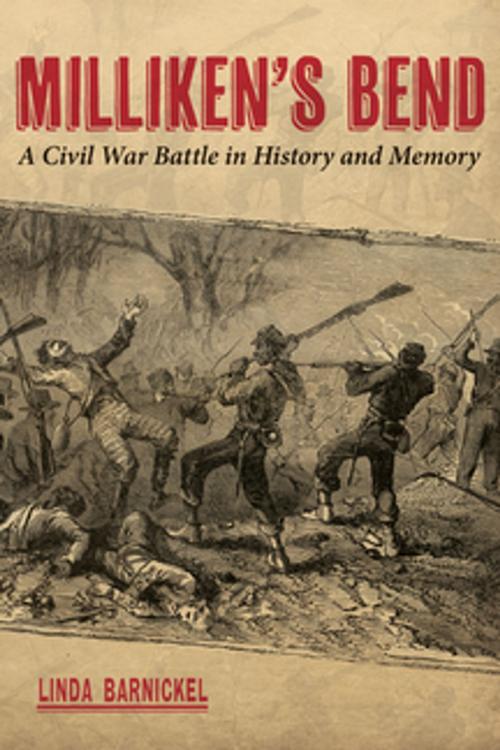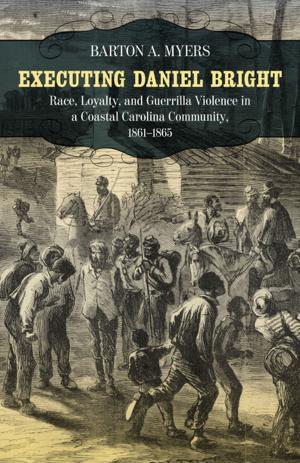Milliken's Bend
A Civil War Battle in History and Memory
Nonfiction, Social & Cultural Studies, Social Science, Discrimination & Race Relations, Cultural Studies, African-American Studies, History, Americas, United States, Civil War Period (1850-1877)| Author: | Linda Barnickel | ISBN: | 9780807149942 |
| Publisher: | LSU Press | Publication: | April 15, 2013 |
| Imprint: | LSU Press | Language: | English |
| Author: | Linda Barnickel |
| ISBN: | 9780807149942 |
| Publisher: | LSU Press |
| Publication: | April 15, 2013 |
| Imprint: | LSU Press |
| Language: | English |
At Milliken's Bend, Louisiana, a Union force composed predominantly of former slaves met their Confederate adversaries in one of the bloodiest engagements of the war. This small yet important fight received some initial widespread attention but soon drifted into obscurity. In Milliken's Bend, Linda Barnickel uncovers the story of this long-forgotten and highly controversial battle.
The fighting at Milliken's Bend occurred in June 1863, about fifteen miles north of Vicksburg on the west bank of the Mississippi River, where a brigade of Texas Confederates attacked a Federal outpost. Most of the Union defenders had been slaves less than two months before. The new African American recruits fought well, despite their minimal training, and Milliken's Bend helped prove to a skeptical northern public that black men were indeed fit for combat duty. After the battle, accusations swirled that Confederates had executed some prisoners taken from the "Colored Troops." The charges eventually led to a congressional investigation and contributed to the suspension of prisoner exchanges between North and South.
Barnickel's compelling and comprehensive account of the battle illuminates not only the immense complexity of the events that transpired in northeastern Louisiana during the Vicksburg Campaign but also the implications of Milliken's Bend upon the war as a whole. The battle contributed to southerners' increasing fears of slave insurrection and heightened their anxieties about emancipation. In the North, it helped foster a commitment to allow free blacks and former slaves to take part in the war to end slavery. And for African Americans, both free and enslaved, Milliken's Bend symbolized their never-ending struggle for freedom.
At Milliken's Bend, Louisiana, a Union force composed predominantly of former slaves met their Confederate adversaries in one of the bloodiest engagements of the war. This small yet important fight received some initial widespread attention but soon drifted into obscurity. In Milliken's Bend, Linda Barnickel uncovers the story of this long-forgotten and highly controversial battle.
The fighting at Milliken's Bend occurred in June 1863, about fifteen miles north of Vicksburg on the west bank of the Mississippi River, where a brigade of Texas Confederates attacked a Federal outpost. Most of the Union defenders had been slaves less than two months before. The new African American recruits fought well, despite their minimal training, and Milliken's Bend helped prove to a skeptical northern public that black men were indeed fit for combat duty. After the battle, accusations swirled that Confederates had executed some prisoners taken from the "Colored Troops." The charges eventually led to a congressional investigation and contributed to the suspension of prisoner exchanges between North and South.
Barnickel's compelling and comprehensive account of the battle illuminates not only the immense complexity of the events that transpired in northeastern Louisiana during the Vicksburg Campaign but also the implications of Milliken's Bend upon the war as a whole. The battle contributed to southerners' increasing fears of slave insurrection and heightened their anxieties about emancipation. In the North, it helped foster a commitment to allow free blacks and former slaves to take part in the war to end slavery. And for African Americans, both free and enslaved, Milliken's Bend symbolized their never-ending struggle for freedom.















